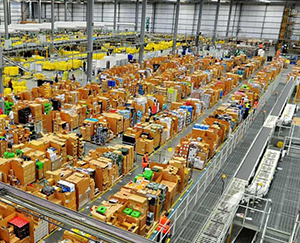 In early September 2008, I drove down to Charleston to visit a cousin who had recently suffered a terrible accident. Throughout the drive I listened to extended public radio reports on an evolving calamity: the collapse of Lehman Brothers financial services firm. The horror that the government was going to allow such a large firm to go under was decorated with the baroque gadgetry of terms that would become more familiar in the coming years: credit default swaps, subprime mortgage lending, tranches, CDOs. The gore and detail of the cover that had been constructed around scams and fraud at the broadest level was audible in the voices of interviewers and guests. There was a tinge of disbelief within their attempts to explain what these terms meant and how they had gotten us all (!) into so much peril. It was as close to 1929 as we had come and potentially far worse – so extensively had the giant vampire squid of financial engineering welded its tentacles to every sector. Housing, banking, investing, construction, debt, bonds… this is business America now, and every other activity is vulnerable to its caprice. It was the stretch run of a presidential election as well; one candidate tried to suspend the campaign, the other fortunately tried to hold things together.
In early September 2008, I drove down to Charleston to visit a cousin who had recently suffered a terrible accident. Throughout the drive I listened to extended public radio reports on an evolving calamity: the collapse of Lehman Brothers financial services firm. The horror that the government was going to allow such a large firm to go under was decorated with the baroque gadgetry of terms that would become more familiar in the coming years: credit default swaps, subprime mortgage lending, tranches, CDOs. The gore and detail of the cover that had been constructed around scams and fraud at the broadest level was audible in the voices of interviewers and guests. There was a tinge of disbelief within their attempts to explain what these terms meant and how they had gotten us all (!) into so much peril. It was as close to 1929 as we had come and potentially far worse – so extensively had the giant vampire squid of financial engineering welded its tentacles to every sector. Housing, banking, investing, construction, debt, bonds… this is business America now, and every other activity is vulnerable to its caprice. It was the stretch run of a presidential election as well; one candidate tried to suspend the campaign, the other fortunately tried to hold things together.
And he did mange to hold things together, despite rather obvious at the time challenges he personally faced. But the Lehman moment got everyone’s attention, everyone who mattered. $700 billion for Troubled Asset Relief (TARP), $250 billion for Capital Purchase(CPP), in addition to billions more in government-backed guarantees to individual banks. And eventually, in July 2010, the Dodd-Frank Wall Street Reform and Consumer Protection Act was enacted. It seemed the public assistance required to save the vampire from itself had sealed the argument in favor of financial reform.
Yesterday, the Republican House of Representatives passed the Financial Choice Act and can you guess what it does? Right! Overturns Dodd-Frank. And not only is it a bad idea to weaken a law that requires stronger banks,
The bill also offers the wrong kind of relief. During the last crisis, all kinds of financial activity — including insurance, money-market funds and speculative trading at banks — depended on government support. That’s why Dodd-Frank placed limits on banks’ trading operations and provided added oversight for all systemically important institutions, and why regulators require them to have enough cash on hand to survive a panic.
Those provisions aren’t perfect — simpler and more effective options exist — but the Choice Act just scraps them. What’s more, it would eliminate the Office of Financial Research, created to give regulators the data they need to see what’s going on in markets and institutions. The law would leave regulators in the dark, and taxpayers implicitly or explicitly backing much of the financial sector.
If you didn’t click, that’s coming from fcking Bloomberg. The financial industry doesn’t even think it’s a good idea. In trying to undo more Obama-era legislation, the know-nothings in Congress are re-setting the table for our financial catastrophe guests. Sure, certain things could make Dodd-Frank unnecessary. But unfortunately, none of the thousands of people, firms, funds and frauds who populate this sector care about a stronger financial system or its being more competitive. It’s the logic of business – the democracy, whiskey, sexy of fools.
Image: Detail from The Garden of Earthly Delights, by Hieronymus Bosch, ca. 1500


 In early September 2008, I drove down to Charleston to visit a cousin who had recently suffered a terrible accident. Throughout the drive I listened to extended public radio reports on an evolving calamity: the collapse of Lehman Brothers financial services firm. The horror that the government was going to allow such a large firm to go under was decorated with the baroque gadgetry of terms that would become more familiar in the coming years: credit default swaps, subprime mortgage lending, tranches, CDOs. The gore and detail of the cover that had been constructed around scams and fraud at the broadest level was audible in the voices of interviewers and guests. There was a tinge of disbelief within their attempts to explain what these terms meant and how they had gotten us all (!) into so much peril. It was as close to 1929 as we had come and potentially far worse – so extensively had the giant vampire squid of financial engineering welded its tentacles to every sector. Housing, banking, investing, construction, debt, bonds… this is business America now, and every other activity is vulnerable to its caprice. It was the stretch run of a presidential election as well; one candidate tried to suspend the campaign, the other fortunately tried to hold things together.
In early September 2008, I drove down to Charleston to visit a cousin who had recently suffered a terrible accident. Throughout the drive I listened to extended public radio reports on an evolving calamity: the collapse of Lehman Brothers financial services firm. The horror that the government was going to allow such a large firm to go under was decorated with the baroque gadgetry of terms that would become more familiar in the coming years: credit default swaps, subprime mortgage lending, tranches, CDOs. The gore and detail of the cover that had been constructed around scams and fraud at the broadest level was audible in the voices of interviewers and guests. There was a tinge of disbelief within their attempts to explain what these terms meant and how they had gotten us all (!) into so much peril. It was as close to 1929 as we had come and potentially far worse – so extensively had the giant vampire squid of financial engineering welded its tentacles to every sector. Housing, banking, investing, construction, debt, bonds… this is business America now, and every other activity is vulnerable to its caprice. It was the stretch run of a presidential election as well; one candidate tried to suspend the campaign, the other fortunately tried to hold things together.